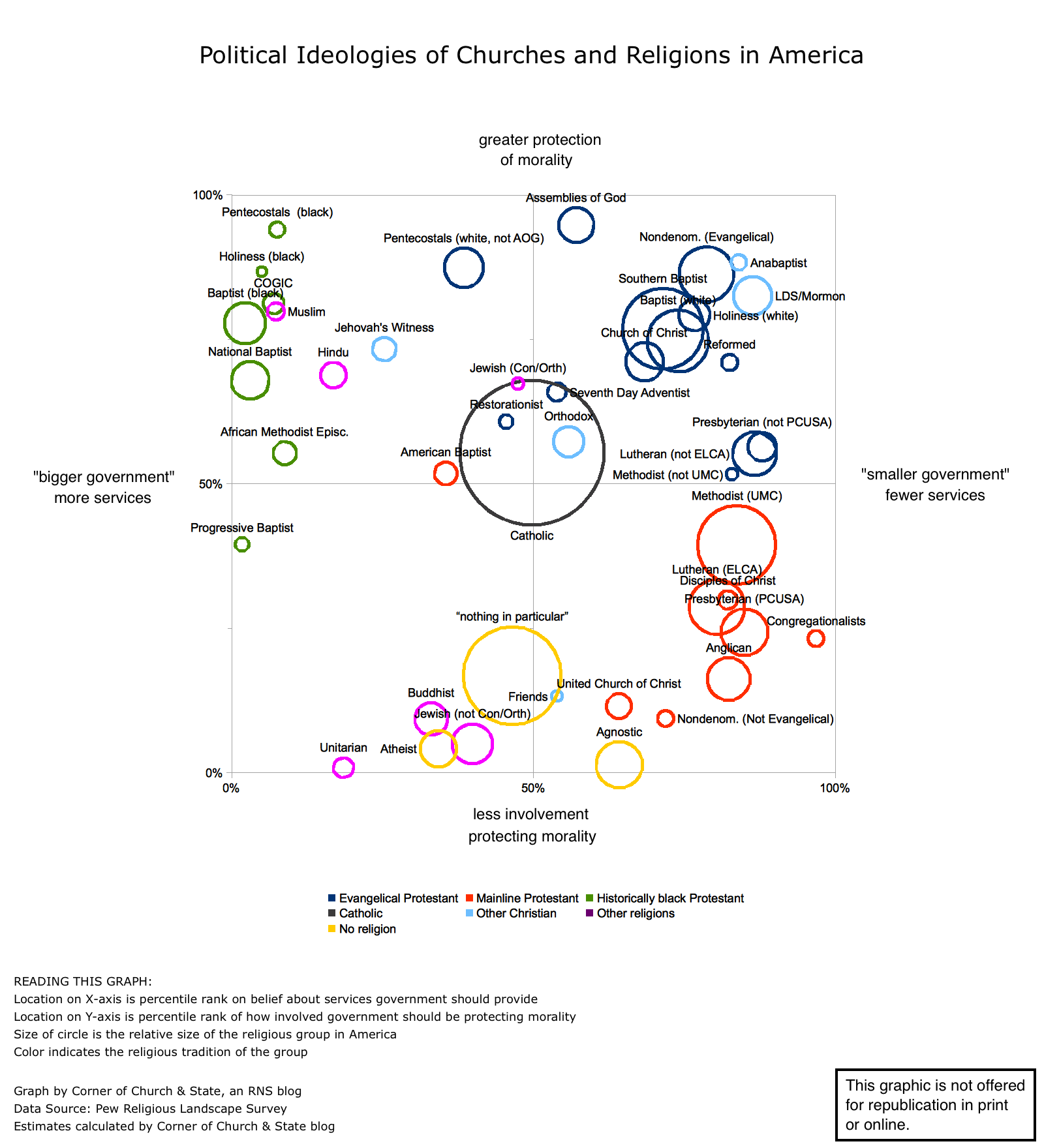Let Your Voice Be Heard: Why Atheist Political Activism Matters
 Photo by scukrov / 123RF
Photo by scukrov / 123RF With politicians bending over backward to appeal to the religious right and no open atheists in Congress, humanists in the U.S. can understandably feel left out of the political process. But our feelings of marginalization are dramatically illustrated by this graph from Religion News Service, created from data in Pew’s U.S. Religious Landscape Survey.

The graph organizes religions in America in regard to their positions on two highly-charged political issues. The first issue (represented on the horizontal x-axis) is whether the religious organization favors a strong central government that provides more services and more economic regulation or a small central government that provides a limited number of services and less economic regulation. The second issue (represented on the vertical y-axis) is whether the religious organization favors government promotion of traditional values and morals or prefers a strong separation of church and state and little government oversight of individual’s private lives.
The graph’s results demonstrate that there is strong support from atheists for the separation of church and state, and that they are also more likely to support a strong central government with increased social services. Agnostics are also in favor of upholding Jefferson’s wall, though they are more likely than atheists to support limited government services and economic regulation. Those who do not identify with any religion in particular are centrist on the issue of big government, but they also overwhelmingly support government neutrality on issues of religion and morality. A small number of religious groups, including Jews, Buddhists, Unitarians, and non-evangelical, non-denominational Christians also support a strong separation of church and state.
In contrast to the “nones” and a few other groups, however, most religions in the U.S. overwhelmingly favor government support of traditional morality and religious values. And when the majority supports the government legislating individual’s private lives based on their own morals, politicians are going to take notice.
This is why we, as humanists, need to make sure that we are involved in the political process. The separation of church and state protects all of us, even those who are religious, and ensures that those who wish to worship a god are free to do so without imposing their beliefs on others. The Establishment Clause guarantees that we as citizens—not the government!—all have the right to make up our own minds about the existence of a deity and about morality. This is one of the most vital rights that our country was founded on.
Even though atheists, agnostics and other “nones” may not tend to agree on the size of the government, we can all agree that upholding the separation of church and state is extremely important. And if we continue to fight to protect this right, then we can change the current political landscape. We can show congressional candidates, like James Woods of Arizona’s 5th district, that being out as an atheist isn’t political suicide. And we can show people like Representative Doug Collins that ignoring the rights of religious and nonreligious minorities is not acceptable. Humanists, let your voiced be heard!
